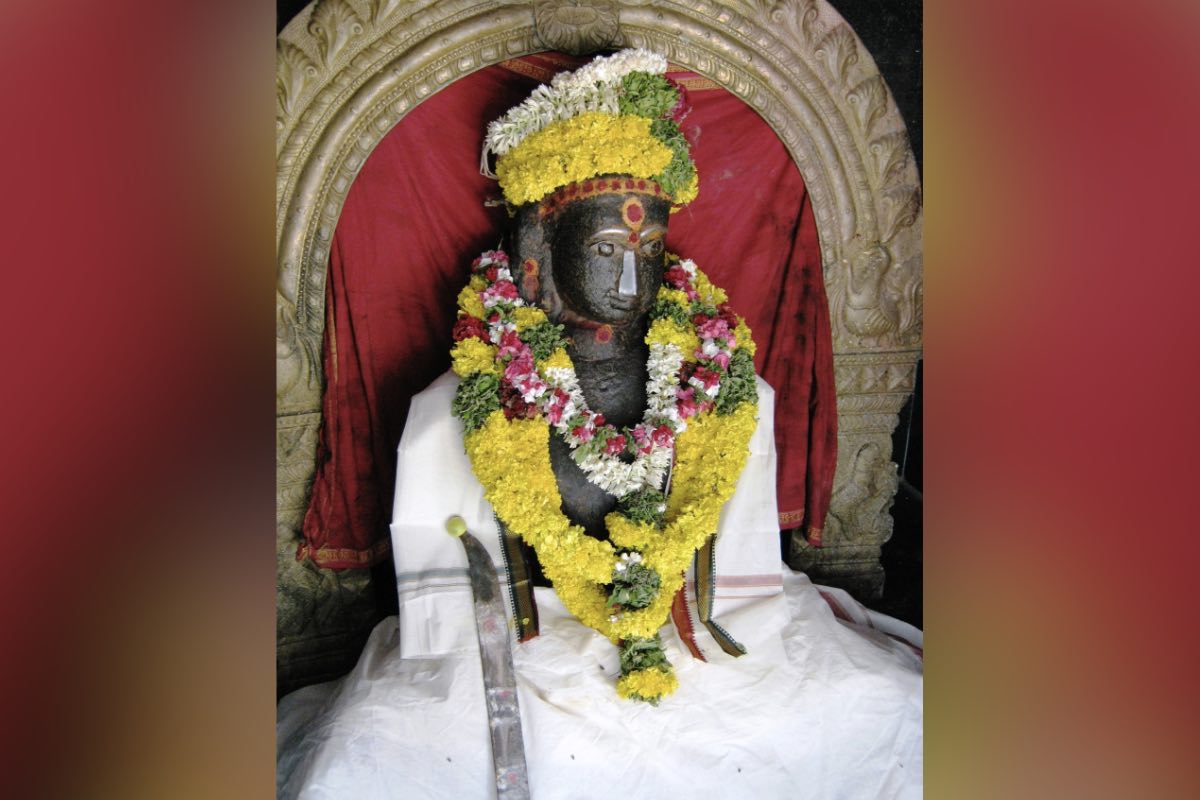 Image: Wikimedia commons/Raju Khan – SR Rajesh
Image: Wikimedia commons/Raju Khan – SR Rajesh
On July 19, the single-judge Bench of Justice N Anand Venkatesh of the Madras High Court directed that Hindu prayers be halted at a temple in Salem, after the Principal Secretary and Commissioner of the Archeological Department of Tamil Nadu submitted a report stating that the idol of the deity was that of Buddha.
The petitioners, one P Ranganathan (now deceased) and Buddha Trust (represented by trustee R Selvakumar), had filed a writ petition under Article 226 of the Constitution of India, praying for an investigation by the Archeological Survey of India (ASI), that was the fourth respondent in the case, into the identity and antiquity of the idol, and also prayed that the land and temple premises be restored to the Buddha Trust.
In November 2017, the HC had directed the Principal Secretary and Commissioner of the Archeological Department of Tamil Nadu, who was the sixth respondent in the case, to conduct the investigation of the idol and the temple located at Kottai Road in Periyeri Village of Salem District in Tamil Nadu. The ASI survey was to ascertain the veracity of the petitioner’s claims that the temple was originally a Buddhist temple but was slowly turned into a Hindu temple, with devotees offering prayers to an idol that the Buddha Trust claimed was that of Budhha, but Hindu devotees claimed was that of Hindu deity Thalaivetti Muniyappan.
According to the Archeological Department’s report submitted to the HC, “The temple building of Thalaivetti Muniappan is of modern origin. It is built of cement, bricks and concrete. The temple is under the control of Hindu Religious and Charitable Endowments Department (HR&CE), Tamil Nadu. Poojas are performed daily here.” An inspection of the idol had been carried out in July 2021 by the team of the Archeological Department, and they concluded, “After inspecting the sculpture and carefully examining the available archaeological and historical evidences at our disposal, the Committee collectively expressed their opinion that the sculpture depicts several mahalakshanas (great traits) of the Buddha.”
Meanwhile, the Additional Government pleader on written instructions received from the Executive Officer submitted that this place has been treated as a Temple of Thalaivetti Muniappan for a considerable period and the people in the locality also used to come to this place for worship. Therefore, the learned counsel submitted that the HR & CE Department will continue to take control of this place by treating it as a Temple.
However, the HC disagreed and observed, “After having received such a report, it will not be appropriate to permit the HR & CE Department to continue to treat this sculpture as Thalaivetti Muniappan.” The court concluded, “The mistaken identity cannot be allowed to continue after coming to a conclusion that the sculpture is that of Buddha.”
Therefore, the HC ruled, “In view of the same, the original status must be restored and permitting the HR & CE Department, to continue to treat the sculpture as Thalaivetti Muniappan, will not be appropriate and it will go against the very tenets of Buddhism.”
The court further directed the Archeological Department to take control of the property and “also erect a Board inside the property by depicting the sculpture inside the property as Buddha. The general public can also be permitted to visit this place and it shall be ensured that no poojas or other ceremonies are allowed to be performed for the sculpture of Buddha.”
The entire order may be read here:
Related:
Krishna Janmabhoomi: Daily hearings on maintainability to begin from July 25
Gyanvapi case: SC to wait for Varanasi district court’s decision on suit maintainability